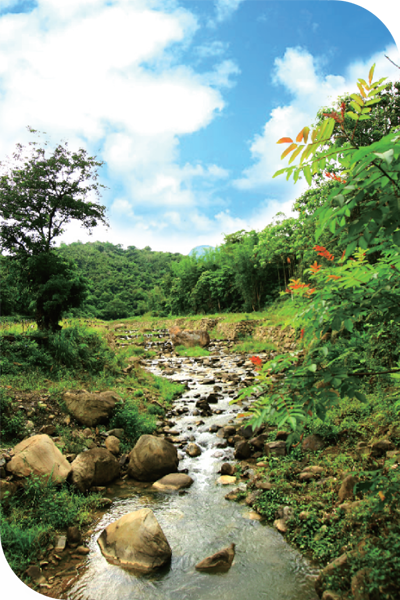Prospect
- Update:
- Views: 888

The Vision of the Agency of Rural Development and Soil and Water Conservation
The predecessor of the Agency of Rural Development and Soil and Water Conservation was the Mountain Agricultural Resources Development Bureau. Back in the 1960s, the Bureau was already assisting farmers to construct drainage channels, terraces, agricultural roads and paths, all of which were related to soil and water conservation. Over the years, the Agency of Rural Development and Soil and Water Conservation developed close ties with the rural village. The mission of the Agency has been to combine improvement in the livelihood of farmers while taking into account the needs of the environment.
In recent years, a focus of the Agency’s activities has been comprehensive disaster prevention for slopeland areas. Experiences gathered over years have led to the development of new methods. Under the guiding principle of finding harmony between humans and nature with the awareness of carbon emission reduction and energy efficiency, conservation practices have always taken place under the motto of “suitability to local needs, using local materials.” These principles have been adopted as a means of protecting life and property without harming the environment.
Over the last decade, global warming has resulted in climatic change around the world. Innovative thinking is required to meet these challenges. Hence, the Agency of Rural Development and Soil and Water Conservation established the Debris-flow Disaster Prevention Center that has helped develop an innovative plan for a debris-flow disaster prevention network. Under the network structure, scholars and experts march into mountain regions to map evacuation routes, debris-flow disaster emergency action team were formed, and self-sufficient disaster prevention within communities was promoted. All the efforts are aimed at reducing the loss of life in any debris-flow disaster to minimum.

The Agency of Rural Development and Soil and Water Conservation also promotes the development of rural villages. The passage of the Rural Regeneration Act in August 2010 was the first law in over a century that gave rural villages the opportunity to take charge. It is a new policy in tune with a new era. The new spirit of community development is very much “from the bottom up,” so that villages can propose their own ideas of development. The Agency offers training courses to improve the quality of human resources available for rural development, and hopes to promote the preservation of local history and culture. The aim is for local culture and industry to break out from its constraints, giving young people a reason to return to their hometowns to develop new business opportunities. Only if the new generation plants roots in local communities will they be capable of sustainable regeneration.
The task of soil and water conservation is comprehensive, sustainable and urgent. In addition to promoting Integrated Watershed Conservation and Restoration and establishing agencies that can effectively ensure the safety of local communities during debris-flow disasters, it is also necessary to draw on the knowledge and resources of experts in different fields and to improve the capability of autonomous action for local organizations. Only by combining factors such as ecology, scenery, daily life, industrial development and local culture will we be able to achieve the aims of sustainable rural village development and security of environment.